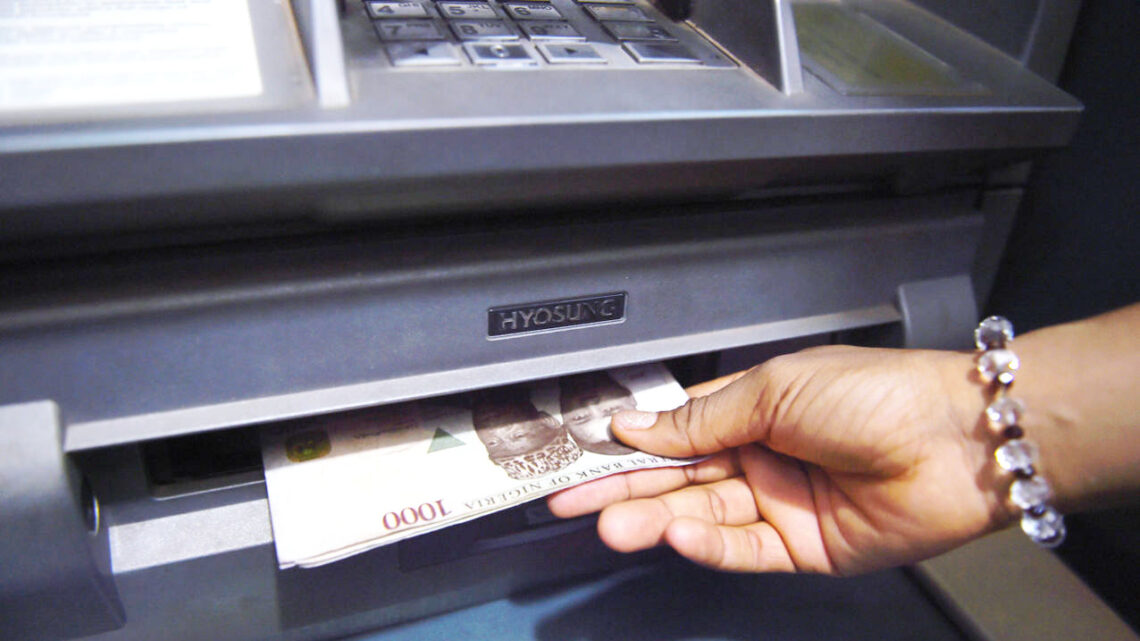Consumers in Nigeria may soon face higher charges for cash withdrawals from Point-of-Sale (PoS) agents following the Central Bank of Nigeria’s (CBN) latest adjustment of Automated Teller Machine (ATM) withdrawal fees. The revised fees, set to take effect on March 1, 2025, have sparked concerns among both PoS operators and customers, with many anticipating an increase in transaction costs.
Under the new policy, customers will no longer enjoy the three free withdrawals per month from ATMs owned by other banks. Instead, they will be charged N100 fee per N20,000 withdrawal at on-site ATMs located within bank premises. For off-site ATMs, such as those found in malls and fuel stations, an additional surcharge of up to N500 may apply. These changes come as part of broader reforms aimed at addressing rising operational costs in the banking sector.
The CBN, in its circular signed by John Onojah, the acting director of the Financial Policy and Regulation Department, explained that the revised fees are designed to “improve efficiency and sustainability in the deployment of ATMs across the country.”
Analysts have raised concerns about the broader impact of the policy on financial inclusion. Nigeria has been striving to encourage more people to use formal banking services, but additional transaction costs could discourage individuals from keeping their money in banks. Financial expert Adaeze Nwosu noted, “The introduction of these charges could drive more people towards informal savings methods or mobile money operators. The government should be looking for ways to ease financial transactions, not make them more expensive.”
Despite the backlash, the CBN insists that the policy will help streamline ATM services. One of the central issues the directive seeks to address is the high cost of maintaining ATMs, particularly in remote locations. A bank official who spoke on condition of anonymity explained, “Banks spend millions of naira annually maintaining ATMs, stocking them with cash, and ensuring security. These charges will help sustain ATM services, especially in areas where it is not always profitable to run them.”
The mere fact that the hundreds of thousands of Point of Sale (PoS) operators strewn about the country depend on the availability of cash from ATMs has clear implications for the costs of withdrawals by users of cash. Isaac Muokhudo, an economist and PoS operator, estimates that it may cost as much as N850 to withdraw N20,000 when the policy comes into force beginning March 1, 2025.
PoS agents, who serve as intermediaries for financial transactions across Nigeria, said the new ATM fees will inevitably affect their operations. Many rely on ATM withdrawals to access cash for their businesses, and with higher charges imposed by banks, these costs may be passed on to customers.
Ajayi Michael, a PoS agent in Abeokuta, explained the dilemma, “The use of PoS is convenient for customers, but with these new ATM charges, we have no choice but to adjust our fees. Every withdrawal now costs more, and merchants who withdraw amounts above N10,000 will feel the impact the most.”
Similarly, Gladys, a PoS operator in Lagos, lamented that customers often misunderstand the reasons behind increasing PoS charges. “Anything that affects ATM fees will definitely affect PoS prices. People assume PoS agents are the problem, but we’re also dealing with increased operational costs.”
Nigeria’s financial landscape has seen a significant shift towards PoS transactions, with agents playing a crucial role in financial inclusion, especially in rural and underserved communities. However, recent trends indicate that the convenience of PoS services is becoming more costly. Previously, withdrawals of up to N5,000 attracted a charge of N100, but this has now risen to between N150 and N200.
David Abiodun, Chairman of the Lagos Chapter of the Association of Mobile Money & Bank Agents of Nigeria (AMBANN), confirmed that PoS operators will have to raise charges. “The new ATM fees will impact PoS costs because providers have left agents to bear operational expenses alone. Previously, PoS terminals came with preloaded SIM cards and data, and agents earned commissions. Now, they must cover all costs themselves, making it difficult to keep charges low.”
The ongoing strain on Nigeria’s banking system has been further complicated by widespread cash shortages at ATMs. The CBN recently fined several banks N150 million for failing to stock their ATMs adequately, as customers continue to face difficulties accessing cash.
A bank insider speaking to NATIONAL ECONOMY disclosed that the rise of PoS agents has disrupted traditional cash circulation. “PoS agents are stationed at ATMs and businesses, collecting cash that would otherwise be deposited back into the banking system. This reduces the cash available in banks and affects ATM replenishment.”
Industry experts warned that the increasing reliance on PoS agents has led to cash hoarding, further exacerbating liquidity challenges. The Nigeria Inter-Bank Settlement System (NIBSS) reports that PoS terminal deployment surged by 129 per cent over the past three years, underscoring the growing demand for these services.
As concerns mount over the potential exploitation of consumers due to the revised ATM charges, financial analysts and consumer advocacy groups are urging the CBN to regulate PoS fees to prevent excessive charges.
Dr. Wale Imole, Convener of the National Problems and Solutions Initiative, warned that “Nigerians are already struggling with inconsistent and high PoS charges. The CBN must ensure that PoS operators do not use these ATM fee hikes as an excuse to overcharge customers.”
Meanwhile, a trader, Mrs. Ngozi Oluchukwu, expressed mixed feelings about the policy, stating, “If this review improves ATM services, then it might be a good thing. But I hope it also addresses issues like failed transactions and unnecessary deductions.”
With ATM fees increasing and PoS charges likely to follow suit, Nigerians are left weighing their options in an increasingly cash-strapped economy. Whether these new policies will ease financial transactions or add to the cost burden remains to be seen.





